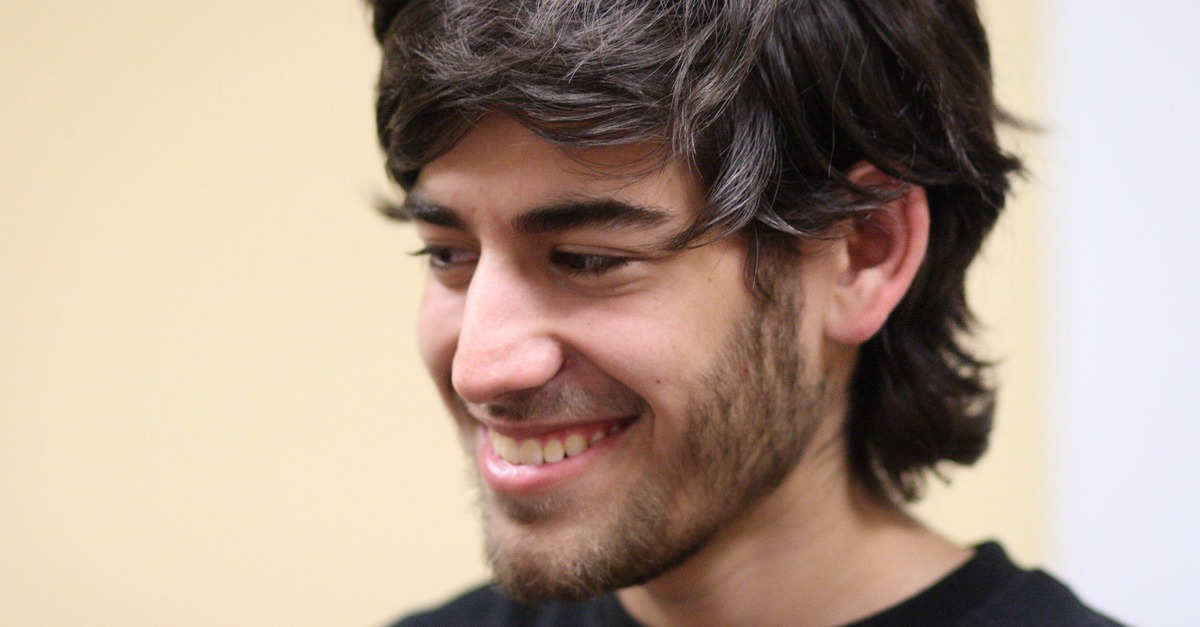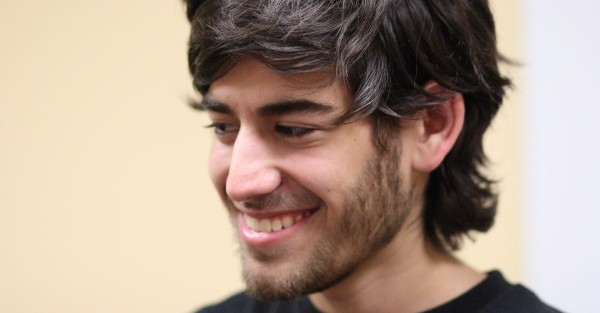Despite the electric controversy sparked by his sudden, sombre suicide, Aaron Swartz remains a favourite of the online world. Affectionately dubbed a “Technological genius”; “the poster boy for internet freedom”; “one of the online world’s most prodigious sons”, the 26-year old was internationally known for his programming skills and digital activism. After illegally downloading four million JSTOR articles via a university computer network, Swartz was federally indicted on 13 charges “including computer fraud, theft of information and wire fraud”. Overnight, the young internet activist found himself facing either 25 years in federal prison or a crippling $1 million fine.
Although initially unnoticed, Aaron’s case quickly gained public momentum. The inherent nonsensicality of the prosecution sparked heavy criticism from the online community. If JSTOR, upon having its articles returned, had declined to pursue the charges… then why was the case still ongoing? “The act was harmless” wrote Aaron’s friend Tim Wu, “there was no actual physical harm, nor actual economic harm. The leak was found and plugged; JSTOR suffered no actual economic loss. It did not press charges. Like a pie in the face, Swartz’s act was annoying to its victim, but of no lasting consequence”.
“He chased his own dreams, and he was willing to disobey laws he considered unjust […] His form of civil disobedience consisted of heading into an M.I.T. closet with a laptop, hooking it up to the Internet, and downloading millions of articles”
Tim goes even further in his critique, likening Swartz’ actions to those of famous civil disobedient Henry David Thoreau. “He chased his own dreams, and he was willing to disobey laws he considered unjust […] His form of civil disobedience consisted of heading into an M.I.T. closet with a laptop, hooking it up to the Internet, and downloading millions of articles”.
Despite the numerous disagreements surrounding the Swartz case, all sources — including the federal prosecutors themselves — unanimously agree that Aaron’s acts were part of a political creed, and not for mere personal gain. Swartz was a long-time supporter of the Open Access movement, a campaign advocating unrestricted online access to peer-reviewed scholarly research. The latter had gained significant public momentum in the 2000s following a series of major international initiatives It called specifically for the removal of unnecessary price barriers to information, claiming open access to be both educationally beneficial and economically feasible.
Aaron’s illegal downloading was therefore a conscientious, politically motivated and non-violent act of protest. Let us bear in mind John Rawl’s definition of civil disobedience: “a public, nonviolent, conscientious yet political act contrary to law usually done with the aim of bringing about a change in the law or policies of the government”. Of the five, bolded criteria listed, three are immediately applicable to Aaron’s case. His act, as aforementioned, was political; Aaron hoped to bring about change in the state’s education policy. He also knew what he was doing at the time. A clear link is discernible between his single act and his greater political creed, making it a conscientious undertaking. Finally, even in light of today’s evolving definition of violence, the act in and of itself was peaceful. Taken in isolation, it caused no physical, emotional, economic, systemic or symbolic violence of any kind.
The real issue lies with the publicity of the act and the kind of law that was breached. With regards to the publicity criterion, it may be worthwhile to distinguish between two different possible “types” of acts of civil disobedience:
- An act in which publicity or the broadcasting of the disobedient’s identity is key to the act’s success
- An act in which publicity or the broadcasting of the disobedient’s identity undermines the act’s success
When committing an act of civil disobedience, it was absolutely crucial to Martin Luther King that his identity and his planned act be both known and broadcasted. How else could people know where and when to join him in the streets as he marched in protest against racial segregation? Advertising his name, his cause and his planned strategy was key to the success of the Civil Rights Movement.
In the case of a hacktivist, however, to advertise one’s identity and planned strategy would be detrimental to the disobeying act. Any law being breached must be breached in kind: a law restricting digital freedom must be broken digitally – a method much easier to undermine than a physical protest. States, as wary as they may be of damaging their reputation by using tear gas on a peaceful crowd, will not think twice when it comes to preventing a single, anonymous hacker who just gave them a how-to manual. One can therefore understand why the publicity criteria should be relaxed when it comes to electronic civil disobedience.
However, if the disobedient gains the right to blur the public/private line, so should the state. This is where the question of “breach of law” conveniently comes into play. Whether or not Aaron broke the law is not the question: even his staunchest supporters will confess the illegality of his act. Furthermore, the law breached was the very one he was protesting: the copyrights held by JSTOR over scholarly articles. However, some may argue that because the law breached was private law, he should have only been liable to prosecution by private bodies (i.e. JSTOR).
States, as wary as they may be of damaging their reputation by using tear gas on a peaceful crowd, will not think twice when it comes to preventing a single, anonymous hacker who just gave them a how-to manual.
In retaliation to such comments, states may here cite that the circumstances of an act condemned by law should not prevent the act from being prosecuted. Whether you’re hacking a public domain or a private domain, you are still hacking. Ergo, you should be liable to prosecution by any body which condemns the act of hacking, public or private. Perhaps one could imagine states being more lenient in a world where hackers specified the kind of domain to be targeted. Then again, this public announcement of their digital strategy would lead us back to square one: undermining one’s own act.
In brief conclusion, states have a rough but logically resistant framework allowing them to claim jurisdiction over cases of internet hacktivism. The disobedient, in a certain way, pays for the privacy of his or her own act by accepting prosecution from a public body, allowing for a public breach of the law to be constituted.
The question now becomes: what kind of punishment should the state apply?





